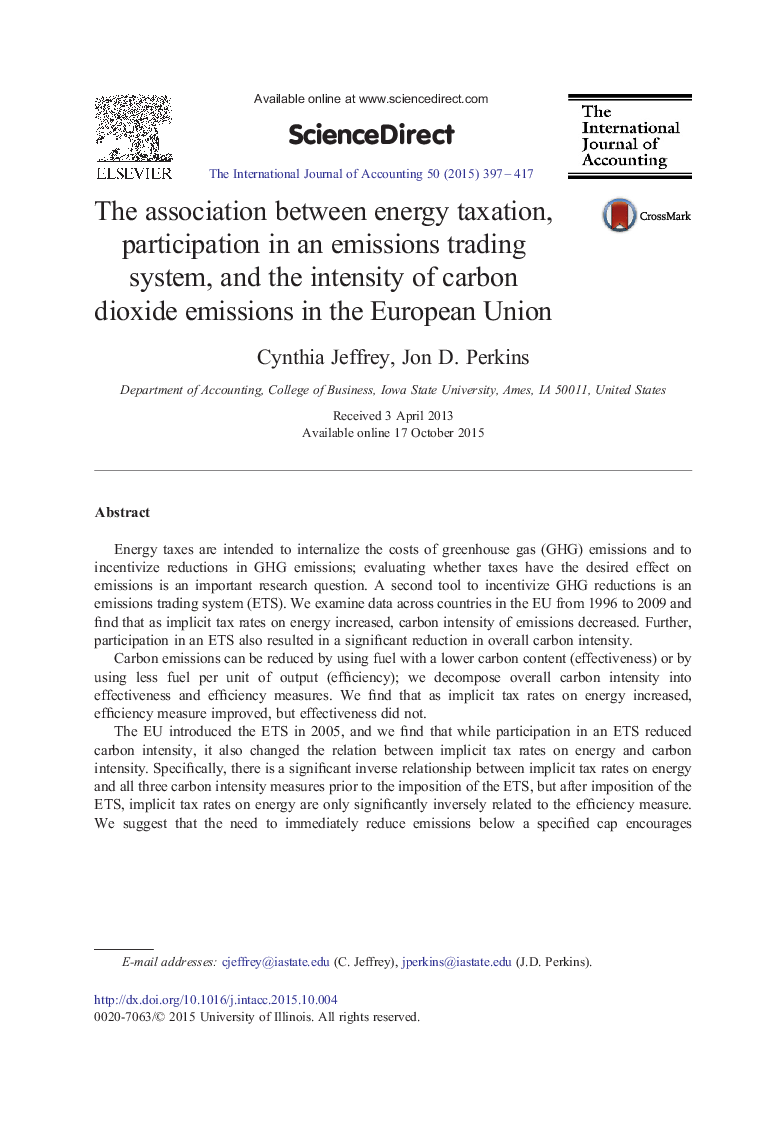| کد مقاله | کد نشریه | سال انتشار | مقاله انگلیسی | نسخه تمام متن |
|---|---|---|---|---|
| 1004842 | 1481924 | 2015 | 21 صفحه PDF | دانلود رایگان |
Energy taxes are intended to internalize the costs of greenhouse gas (GHG) emissions and to incentivize reductions in GHG emissions; evaluating whether taxes have the desired effect on emissions is an important research question. A second tool to incentivize GHG reductions is an emissions trading system (ETS). We examine data across countries in the EU from 1996 to 2009 and find that as implicit tax rates on energy increased, carbon intensity of emissions decreased. Further, participation in an ETS also resulted in a significant reduction in overall carbon intensity.Carbon emissions can be reduced by using fuel with a lower carbon content (effectiveness) or by using less fuel per unit of output (efficiency); we decompose overall carbon intensity into effectiveness and efficiency measures. We find that as implicit tax rates on energy increased, efficiency measure improved, but effectiveness did not.The EU introduced the ETS in 2005, and we find that while participation in an ETS reduced carbon intensity, it also changed the relation between implicit tax rates on energy and carbon intensity. Specifically, there is a significant inverse relationship between implicit tax rates on energy and all three carbon intensity measures prior to the imposition of the ETS, but after imposition of the ETS, implicit tax rates on energy are only significantly inversely related to the efficiency measure. We suggest that the need to immediately reduce emissions below a specified cap encourages companies to focus on efficiency measures with immediate results, potentially at the expense of effectiveness initiatives. These trade-offs have potential implications for long-run policy outcomes.
Journal: The International Journal of Accounting - Volume 50, Issue 4, December 2015, Pages 397–417
